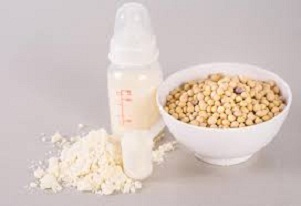10 Different Uses and Benefits of Groundnut Oil/Peanut oil
Different Uses and Benefits of Groundnut Oil/Peanut oil

In various regions of the world, groundnut oil, sometimes known as peanut oil, is used for cooking. This oil has a nutty flavor and is good for your health.
It’s high in antioxidants and monounsaturated fatty acids. Continue reading to see why you should begin using peanut oil.
For most of us, groundnut has been a nice companion during snack-time hunger, casual park strolls, or boredom. They satisfy the taste receptors in a substantial way, whether roasted, fried, boiled, or salted.
They’re high in protein and fiber, and they’re a much healthier alternative to fatty munchies.
What makes Groundnut oil a better option than conventional oils?
- Groundnut oil can be used to deep fry a range of dishes, especially Indian and Chinese, due to its high smoking point.
- The creation of dangerous compounds begins only when groundnut oil has reached the smoking point, which takes a long time to reach. It can also be reused, it’s filterable, and can be used multiple times.
- Groundnut oil doesn’t interfere with the dish’s core flavor because it has a neutral flavor. It also does not absorb the flavor of the ingredients, allowing for reusability without the need for extra flavor overlaps.
- It is cost-effective due to its reusability.
- Groundnut oil does not readily go rancid and may be stored for a long time if kept in a cool, dark, and dry place
What are the health benefits of groundnut oil?
Groundnut oil is generally believed to be healthy, especially if it is organic. Groundnut oil has the following health benefits:
- Unsaturated fat source ~ benefits of groundnut oil
Groundnuts have 40 to 50 percent fat content, and a tablespoon of groundnut oil has 13.5 grams of fat. Different types of fatty acids, such as oleic acid, linoleic acid, stearic acid, and others, make up this fat.
The majority of this is unsaturated fat (both poly and mono), which is thought to be a healthy fat source. This lowers harmful cholesterol levels and lowers the risk of heart disease.
- Promotes heart health ~ benefits of groundnut oil
Because groundnut oil contains no cholesterol, it does not contribute unnecessary dietary cholesterol to our regular intake. As a result, atherosclerosis, a disorder in which plaque accumulates around the arteries and thickens them, can be prevented. It also contains resveratrol, a chemical that lowers blood pressure and relieves stress on the cardiovascular system.
- Contains antioxidants ~ benefits of groundnut oil
Toxins and free radicals are protected from the body by antioxidants. Phytochemicals and vitamin E, both natural antioxidants, are found in groundnut oil. When consumed on a regular basis, it also helps to reduce inflammation. Many diseases, including cancer, are reported to be prevented by it.
- Skin-care ~ benefits of groundnut oil
Vitamin E aids in the maintenance of good skin health, making it appear youthful and healthy. It protects free radicals from causing premature aging, wrinkles, and blemishes.
- For Body Massage ~ benefits of groundnut oil
Groundnut oil is a fantastic oil to massage your body with. It is quite beneficial in the treatment of joint issues.
When used for body massage, peanut oil, also known as groundnut oil, provides new vitality and strength while also assisting in the treatment of joint problems.
It will go a long way in alleviating painful joints and muscles if used on a daily basis for body massage.
- It helps to lower blood pressure ~ benefits of groundnut oil
Groundnut oil contains a significant level of resveratrol, which helps to lower blood pressure and so reduces stress on the cardiovascular system.
Cooking with groundnut oil can assist to keep blood pressure in check.
This antioxidant in the oil is famous for its beneficial interactions with a variety of hormones, including angiotensin, which constricts blood vessels and arteries.
As a result, those with high blood pressure are more likely to have an excess of antigiotensin. Groundnut oil contains resveratrol, which has the ability to regulate the activity of this hormone, which helps to lower blood pressure levels.
Other Uses of Peanut Oil ~ benefits of groundnut oil
Other uses for peanut oil are listed below:
- It can be used as a salad dressing.
- Gravies, stir-fries, and curries can all be made using it.
- It can be used as a marinade for grilling.
- It can be used to make peanut butter, dips, and sauces.
Nutrition Facts and Health Benefits of Groundnut Oil
Groundnut oil is one of the most commonly used vegetable oils in cooking and frying, and it is made from groundnuts, which provide a variety of nutrients.
Groundnut oil contains a low percentage of saturated fats and a high percentage of monounsaturated and polyunsaturated fats. It is also abundant in vital vitamins and has good antioxidant capabilities.
Nutritional Facts of Groundnut Oil
The seeds of the peanut plant are used to extract peanut or groundnut oil. Peanut oil comes in a variety of forms, including refined peanut oil, cold-pressed peanut oil, gourmet peanut oil, and mixed peanut oil.
You can pick and choose from any of these options based on your needs. Many vitamins and minerals are abundant in this nutrient-dense oil. The following table shows the estimated nutritional contents in one cup (216 g) of peanut oil.
| Nutrient | Value |
| Energy | 1910 calories |
| Saturated Fats | 36.5 grams |
| Monosaturated fats | 99.8 grams |
| Poly saturated fats | 69.1 grams |
| Total Fat | 216 grams |
| Phytosterols | 447 grams |
| Vitamin E | 0.0339 grams |
Table source: https://nutritiondata.self.com/facts/fats-and-oils/506/2
How to Make Homemade Groundnut Oil
Although several well-known brands produce peanut oil, it is also possible to make it at home. If you’re interested in the recipe, it’s as follows:
Ingredients
The following are some of the ingredients you’ll need:
- 4 cups uncooked peanuts
- 4 tbsp. distilled water
Method
The steps you should take are as follows:
- Firstly, in a heavy-bottomed pan, toast the peanuts until they begin to emit a pleasant aroma.
- Secondly, remove the peanuts from the heat and set them aside to cool.
- Then, peel the roasted peanuts’ outer shell away.
- After that, blend the roasted peanuts with the water in a blender. To make a smooth paste, combine all of the ingredients in a blender.
- Place the peanut paste in a bowl and refrigerate it. Allow for a day or 24 hours in the refrigerator.
- Then, separate the oil from the paste, drain it, and store it in a sterile glass bottle.
- Finally, use this DIY oil whichever you like.
Are There Any Peanut Oil Side Effects?
Without a doubt, the advantages of peanut oil exceed the disadvantages. It is, however, as crucial to be aware of the drawbacks of groundnut oil.
Peanut oil is high in calories and might contribute to weight gain. Consuming high amounts of this oil might raise harmful cholesterol levels in the body and lead to artery blockage.
This oil may potentially cause an allergic reaction, such as rashes or swelling in the mouth or throat.
FAQs
Here are some of the most frequently asked questions about peanut oil:
- What Is the Shelf Life of Groundnut Oil?
From the date of manufacture, a sealed or unopened container of peanut oil can be used for up to one year. However, the oil should be utilized within four to six months of opening the container, as it may get rancid after that time.
- Is Peanut Oil Better Than Olive Oil?
Peanut oil, like olive oil, contains a high percentage of unsaturated fats. Peanut oil, on the other hand, can be heated to greater temperatures without becoming rancid or harmful, thus picking a peanut oil for frying is a preferable option. Olive oil, on the other hand, is excellent for sautéing and may also be used for stir-frying. Both types of oils provide our bodies with significant health benefits.
Peanut oil can be used on a regular basis because it has a number of health benefits. However, don’t eat too much of it because it might be harmful to your health.
Also, check out:


